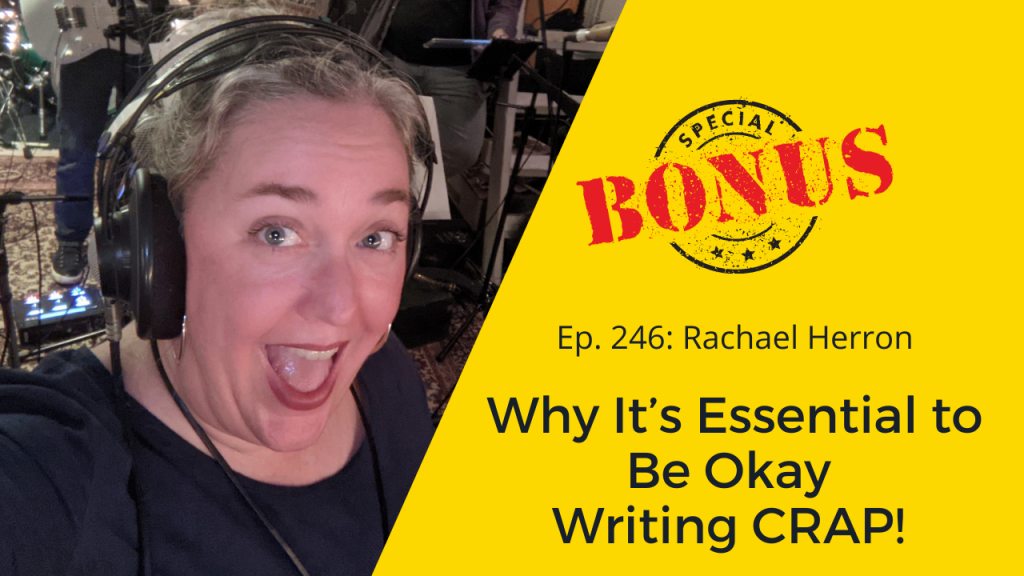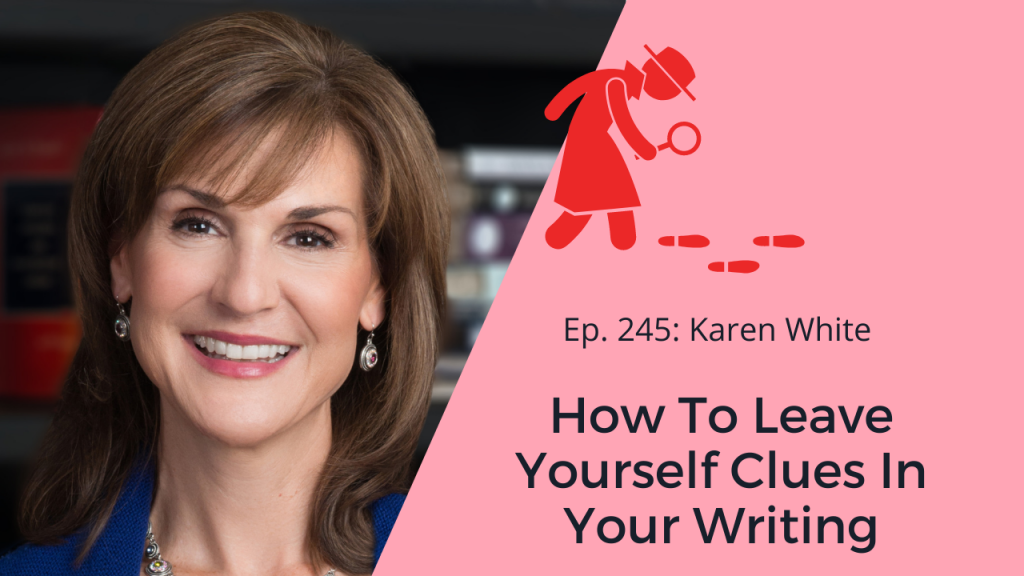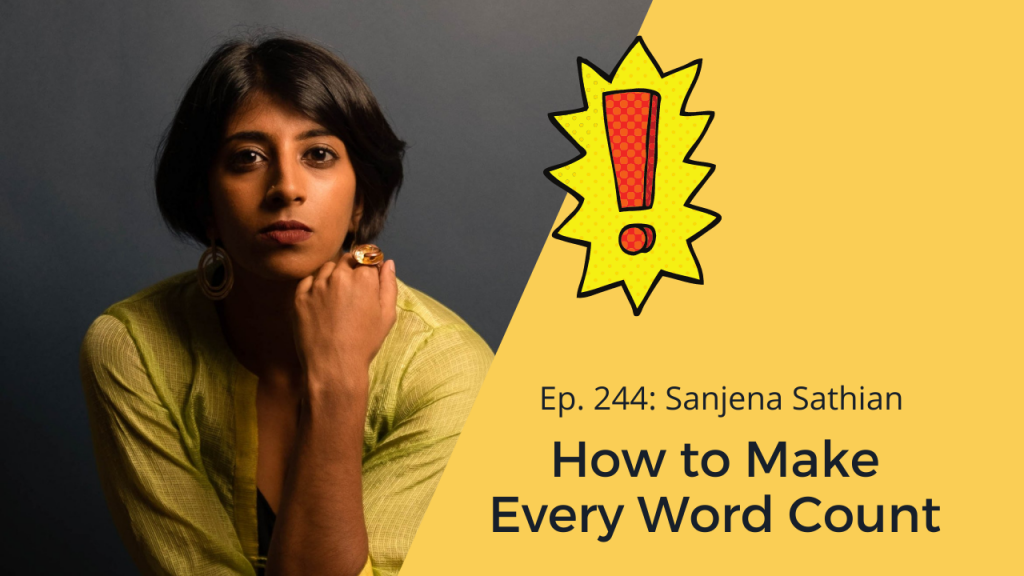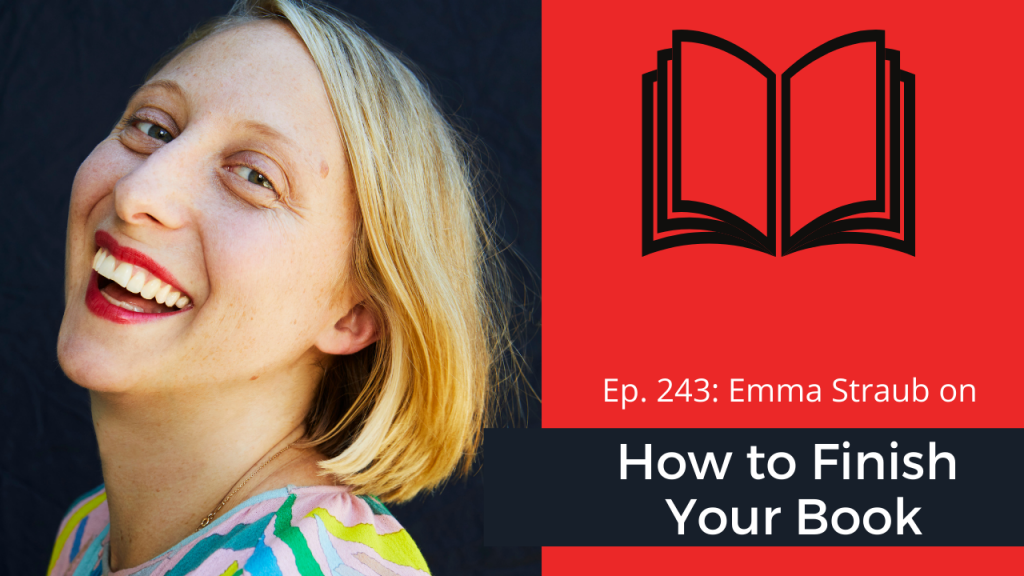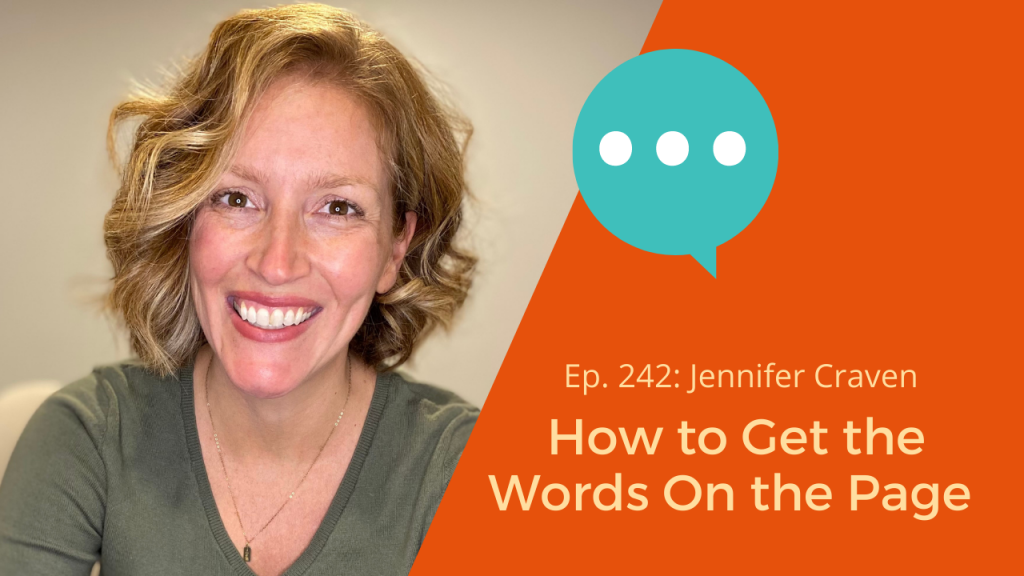Amy E. Reichert is an author, wife, mom, Wisconsinite, amateur chef, and cider enthusiast. She earned her MA in English Literature and serves on her library’s board of directors. She’s a member of Tall Poppy Writers. THE KINDRED SPIRITS SUPPER CLUB is her most recent novel.
How Do You Write Podcast: Explore the processes of working writers with bestselling author Rachael Herron. Want tips on how to write the book you long to finish? Here you’ll gain insight from other writers on how to get in the chair, tricks to stay in it, and inspiration to get your own words flowing.
Join Rachael’s Slack channel, Onward Writers!
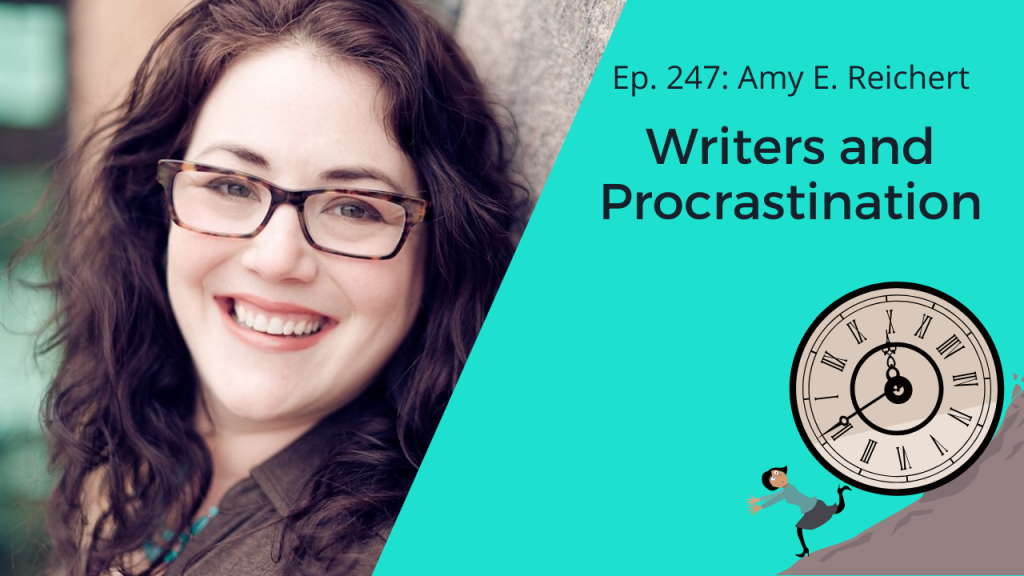
Transcript:
Rachael Herron: [00:00:00] Welcome to “How do you Write?” I’m your host, Rachael Herron. On this podcast, I talk to authors about how they write, what their process is and how their lives fit together. I’ll keep each episode short so you can get back to writing.
[00:00:16] Well, Hello writers! Welcome to episode #247 of “How do you Write?” I’m Rachael Herron. So thrilled you’re here today with me as I’m speaking to Amy Reichert about one of our favorite topics of all time, procrastination. I have this working theory and I bet you subscribed to it too. That writers are better procrastinators than most normal human people. There is something about writing. Well, I know what it is. There’s something about writing that makes us procrastinate because it is painful, because it is never as easy and as fun as say, takin’ a walk to the local ice cream parlor, is it requires thought and effort and an angst and low levels of pain, sometimes high levels of pain. [00:01:08] Of course we become expert procrastinators. There are exceptions. You may be, one of those people who actually gets their work done early every time. I really liked to listen to Adam Grant’s podcast, which forgotten what it’s called but it’s really good. And he is a, he calls himself a pre-crastinator. He loves to get an assignment and start working on it that very day. But the majority of us are not that, we are procrastinators. So, I know you’ll enjoy the episode. Very quickly what it’s going on around here? Well, we’re on the grand adventure. We’re still in the same Airbnb where I was last week. We move this next week out on Sunday, this coming Sunday, we’re going to have our going away party, which I’m kind of sick about. Honestly, I’m so nervous. I don’t like goodbyes at all. I, as a recovering addict, I have made my whole life about avoiding pain, and throwing yourself a goodbye party as you leave the country so that you can say goodbye to the people who are most beloved to you really sucks. [00:02:21] However, I do think a lot about discomfort and living with it and thriving with it. I think we have to, as writers, we have to get comfortable being uncomfortable because writing is discomfort. Writing is resistance, is the discomfort that we feel. And we must be able to sit down with that discomfort and just do the work. So I’m thinking a lot about that as I think about this party coming up, I’m walking toward it with as much of an open-heart as I can. Understanding, and I’m going to cry a lot that day and I hate crying, and I’m getting to better and better at doing it. I’m going to walk forward knowing that it is going to hurt and that, that is part of life. And that I want to see these people and I want to be around them. And I want to tell them that I love them. So, that’s, what’s coming up for me this weekend. I am being saved. My ass is being saved by Pomodoro’s. I mentioned this on Twitter yesterday, but in the busiest times of my life, when everything is all chaos, Pomodoro’s always come to my rescue. I- Pomodoro’s, if you don’t know what they are, it is just a technique of writing in bursts; a traditional Pomodoro is 25 minutes working for 25 minutes and then taking five minutes to do something else. [00:03:46] Usually it is prescribed to do something that does not checking your email or your Twitter or something that has a lot of open loops. You want to do some closed loop stuff on that five-minute break, go get yourself another glass of water. Go to the bathroom, get a snack. Do something that won’t completely hijack you and your brain and for me on a normal and in a normal life, 25 minutes is an irritating time. Amount of time to get stopped in. And I prefer to work in 45 minute chunks or hour chunks, but on these chaotic days where I know that I wouldn’t get any writing done, I have been setting my goal of a bare minimum of two to four Pomodoro’s because you know what? I cannot write today. I will absolutely not write today. There’s no way I’m going to write today. But, could I write for 25 minutes? Okay, fine, fine. Turn on the Pomodoro timer. And for me on Mac, I like to use the Be Focused app, I have the paid version of Be Focused and it works well for me. [00:04:46] So I just turn it on and I do 25 minutes and after 25 minutes, oh suddenly that time is up. It didn’t take that long. Take a little break. I guess I could do another one. So I do another one and that has been saving me. That is the only way I’m getting work done. So I mention it just in case. I know we’ve been talking about it a couple of times on the podcast. Recently here, because I’ve heard from people hello, Eliza, who have heard about it and have tried it and I’ve loved it. So I’m saying it again to reiterate. If you’re not getting your work done, try to get some smaller chunks of work done. One of my students is writing in 12 minute bursts because that is her. And then another one is doing 17 minute bursts because that is the least amount of time that feels like they can actually get a number of words that would make them feel like they have a little bit of success. So they’re doing that. What is your minimum viable product? Have you decided that, have you tried it, have you played with it? I want to know. So come find me. If you’re not on my email newsletter list, you should be, I’m going to ask you to subscribe to it. And I’m going to put it in the little add read in the middle today. Join my email list. That is important. I promise you, I’m going to send one out really soon. Maybe I’ll use a Pomodoro to write one really quickly to get it out because I have not done that in a while. But everything else is going a pace. Very excited. We will be in the air in two and a half weeks. And, I’ll just keep talking to you from New Zealand, tell you how it’s going there. So my friends happy writing to you. Get some work done. Come to find me online and tell me how it’s going. And now please interview this enjoy, how about enjoy this interview with Amy? Happy writing everybody. [00:06:30] Hey, you’re a writer. Did you know that I send out a free weekly email of writing encouragement? Go sign up for it at www.rachaelherron.com/write and you’ll also get my Stop Stalling and Write PDF with helpful tips you can use today to get some of your own writing done. Okay, now onto the interview.Rachael Herron: [00:06:30] All right. Well, I could not be more pleased to welcome to the show, Amy E. Reichert. Hello, Amy!
Amy E. Reichert: [00:06:52] Hello, Rachael. Thank you for having me.
Rachael Herron: [00:06:54] It is a pleasure to have you, let me give you a little introduction and then we’re going to jump in talking about all things writing. Amy E. Reichert is an author, wife, mom, Wisconsinite, amateur chef, and cider enthusiast. She earned her MA in English Literature and serves on her library’s board of directors. I love that. That’s sexy.
Amy E. Reichert: [00:07:13] Thank you.
Rachael Herron: [00:07:14] It really is. She’s a member of it really is library’s board of directors. Wow. She’s a member of the tall copywriters and THE KINDRED SPIRITS SUPPER CLUB is her most recent novel. So congratulations on that. The covers amazing
Amy E. Reichert: [00:07:27] Thank you! I have it right here.
Rachael Herron: [00:07:30] It’s, look at that beautiful! That is- Oh my gosh!
Amy E. Reichert: [00:07:32] It looks really good on the screen.
Rachael Herron: [00:07:35] It looks amazing. I was just actually looking at it a minute ago, thinking like you won a cover lottery for that one. Good job!
Amy E. Reichert: [00:07:41] Thank you. Well, I had nothing to do with it. I just
Rachael Herron: [00:07:47] I know, but it’s really nice when we do hit that lottery and we’re like, yeah. Thanks. So tell us about your writing process. How do you get your books done with all of this other stuff? You mentioned that the kids are going to be walking in the door any minute.
Amy E. Reichert: [00:07:59] Yes.
Rachael Herron: [00:08:00] They’re back in school? What does it look like?
Amy E. Reichert: [00:08:02] They are back- they’ve been in school the whole year. They, it was a hybrid situation where we were so, like if there was a contact tracing situation, they’d be at home for a couple of weeks and then they’d go back.
Rachael Herron: [00:08:15] It sounds smart
Amy E. Reichert: [00:08:17] It was really, really well done. They’ve been wearing masks, they have spacing. They know you have to sit in the exact same spot so that if there is someone who’s, who hasn’t, you know who they were in contact with. So it’s been really, they’ve kept it open. And I think that was a big win for our school district.
Rachael Herron: [00:08:34] Probably a win for your writing as well.
Amy E. Reichert: [00:08:36] Yeah, I can procrastinate and under the best of circumstances
Rachael Herron: [00:08:42] under any circumstances, if you’re like me. Yeah.
Amy E. Reichert: [00:08:44] Yeah. I’m really, really good at that. That’s my super power. Sadly, most that, like, I can get away with doing that with cleaning. Cause eventually, somehow I can get things off of the list. Someone else will just do it, that doesn’t work with writing. No one else, there aren’t little elves that come in and do the writing for me. So at some point I do have to do it.
[Read more…] about Ep. 247: Amy E. Reichert on Writers and Procrastination